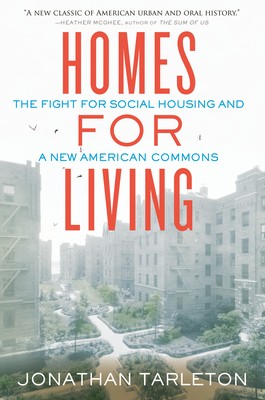
- We will send in 10–14 business days.
- Author: Jonathan Tarleton
- Publisher: Beacon Press
- ISBN-10: 0807017809
- ISBN-13: 9780807017807
- Format: 16.2 x 23.2 x 2.5 cm, kieti viršeliai
- Language: English
- SAVE -10% with code: EXTRA
Reviews
Description
The story of two NYC social housing co-ops, the choice they face on whether to privatize, and how their dilemma illuminates the contours of the housing crisis nationwide Social housing is almost unheard of in the U.S.--where it exists at all, it is usually limited to low-income housing projects. The Mitchell-Lama program in NYC, however, has since the 1950s fostered thriving complexes of highly sought-after subsidized middle-class housing. Yet the stability of these complexes is now being threatened by a growing movement among residents to privatize their apartments. Privatization would remove these apartments from the social housing pool and allow residents to sell their units for millions of dollars on the free market. Urban planner and oral historian Jonathan Tarleton introduces us to these residents, their way of life, and the pro- and anti-privatization camps into which they've coalesced. As both sides hand out pamphlets to their neighbors, campaigning and jockeying in the run-up to the privatization vote, their dilemma illuminates profound issues on the nature of housing in the United States--its commodification, those who argue that it should be a public good, its increasing scarcity and unaffordability, and questions of race, class, tenant rights, indigenous sovereignty, and what we owe each other.EXTRA 10 % discount with code: EXTRA
The promotion ends in 22d.09:13:32
The discount code is valid when purchasing from 10 €. Discounts do not stack.
- Author: Jonathan Tarleton
- Publisher: Beacon Press
- ISBN-10: 0807017809
- ISBN-13: 9780807017807
- Format: 16.2 x 23.2 x 2.5 cm, kieti viršeliai
- Language: English English


Reviews